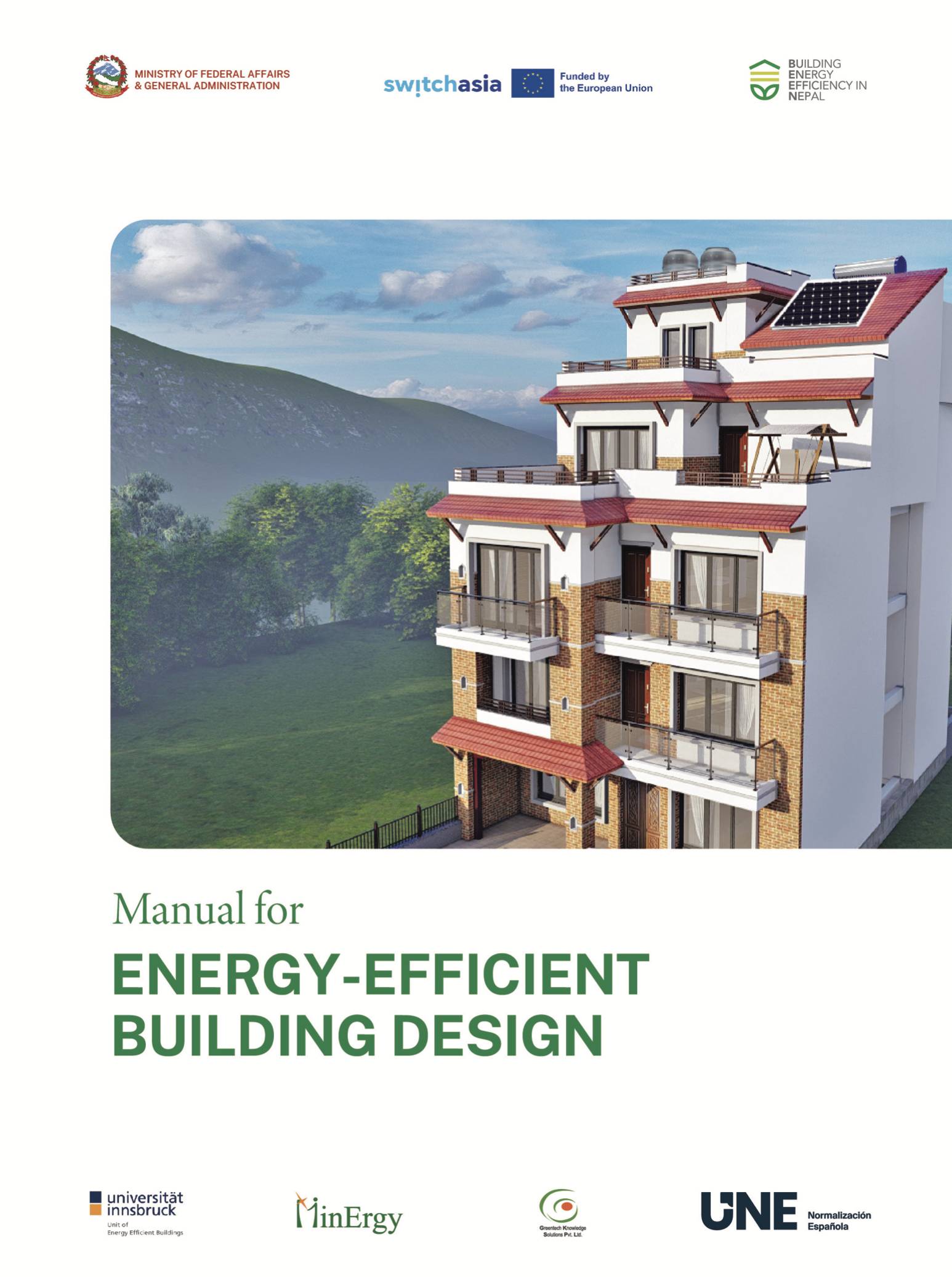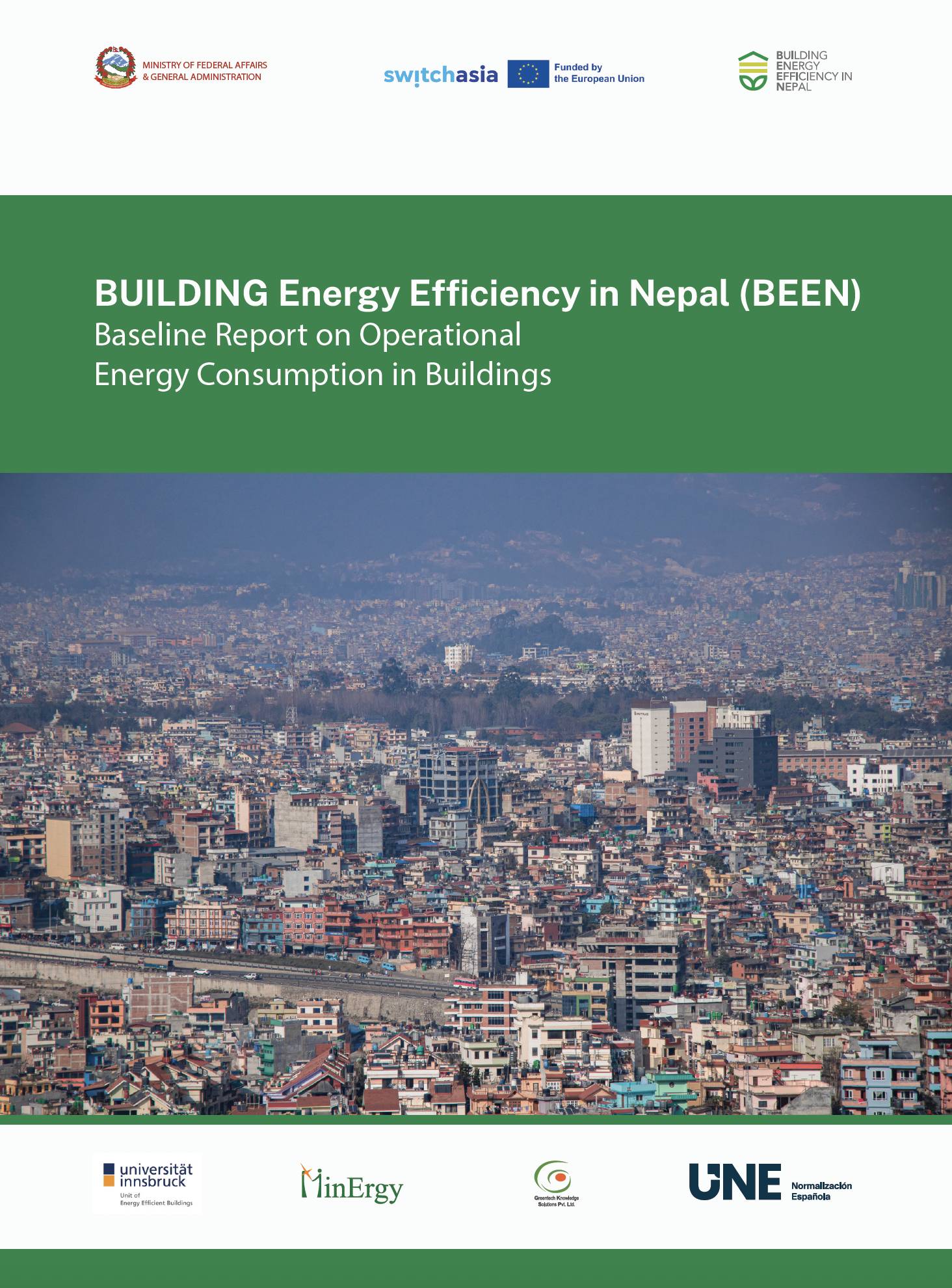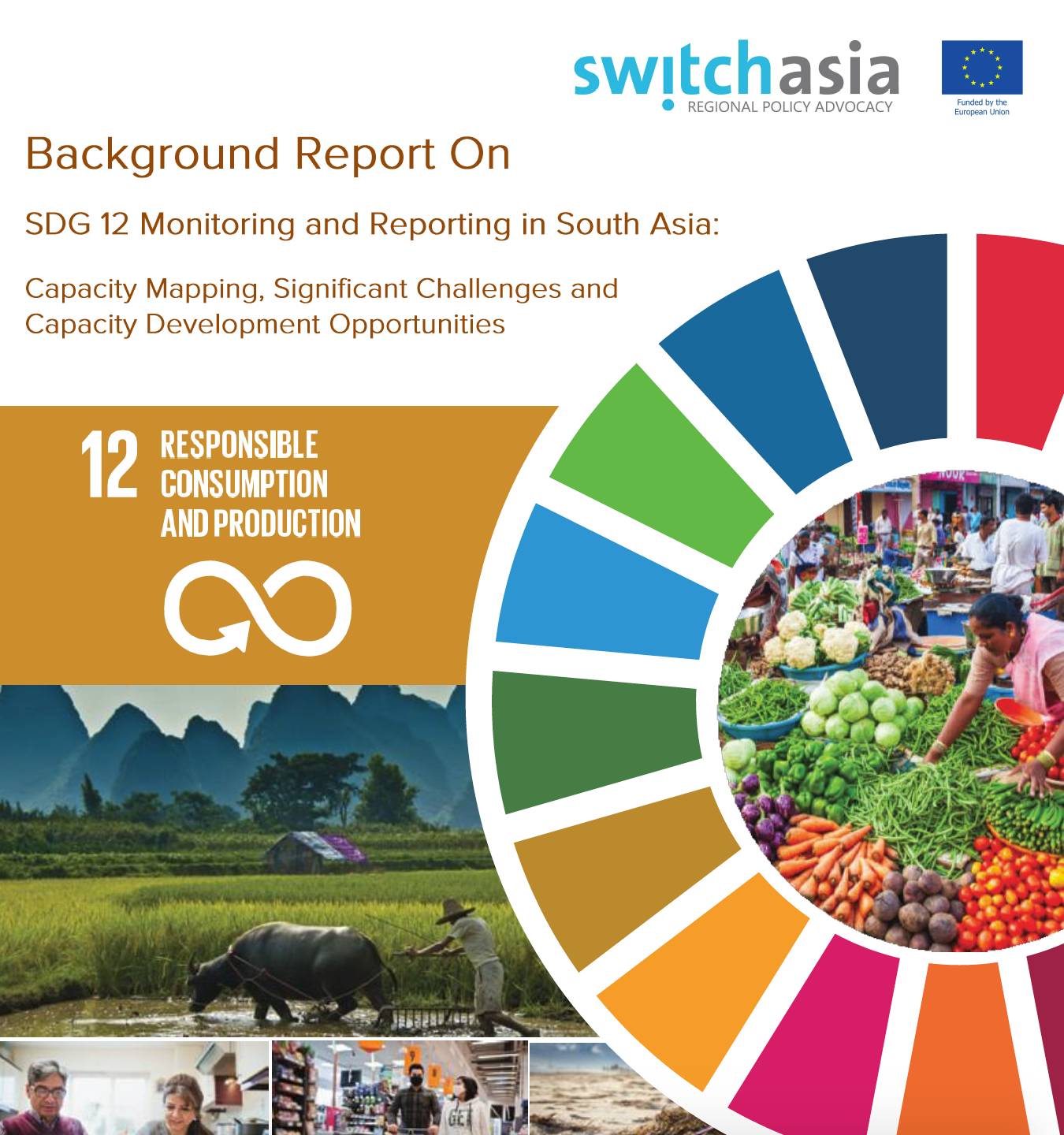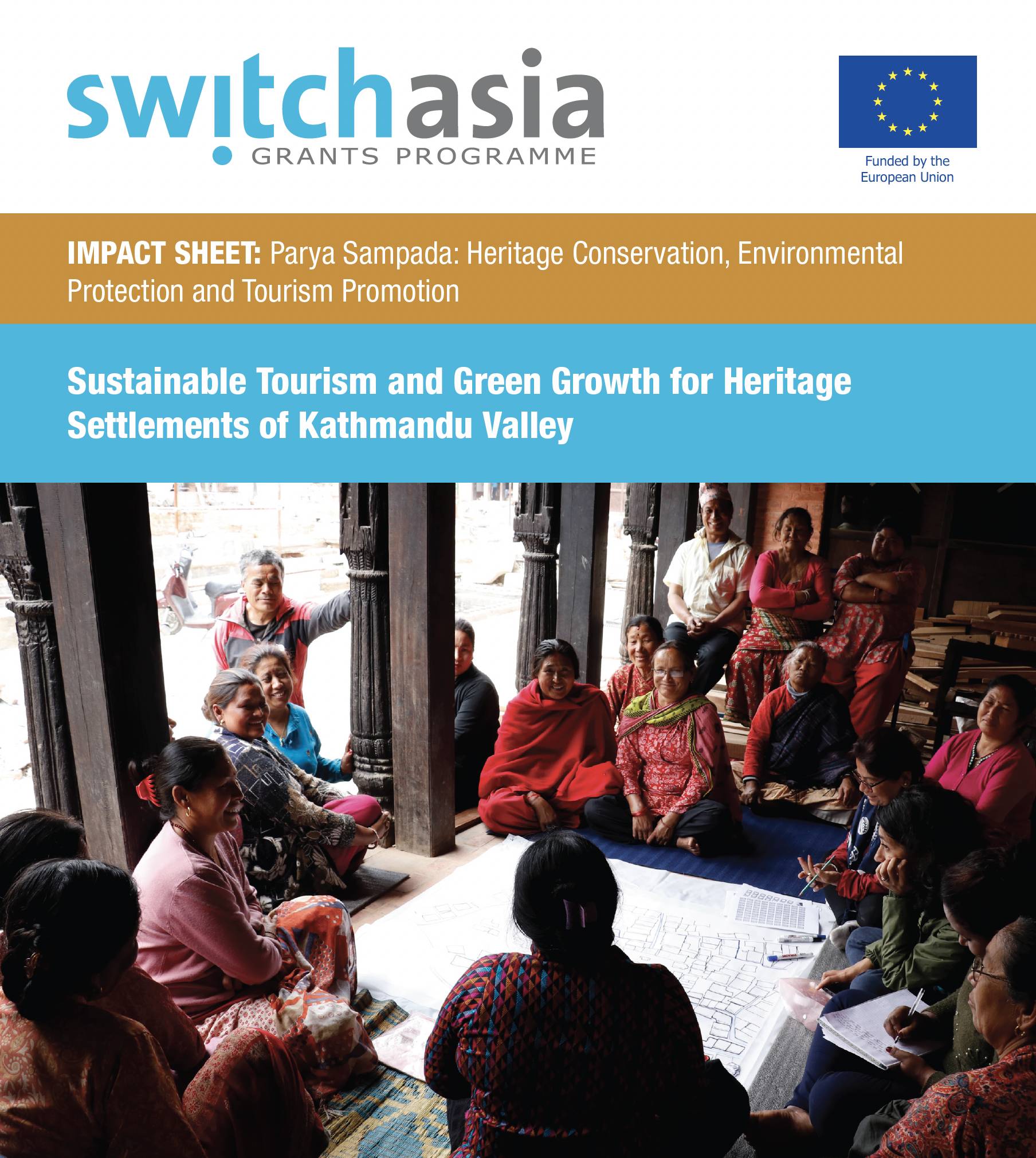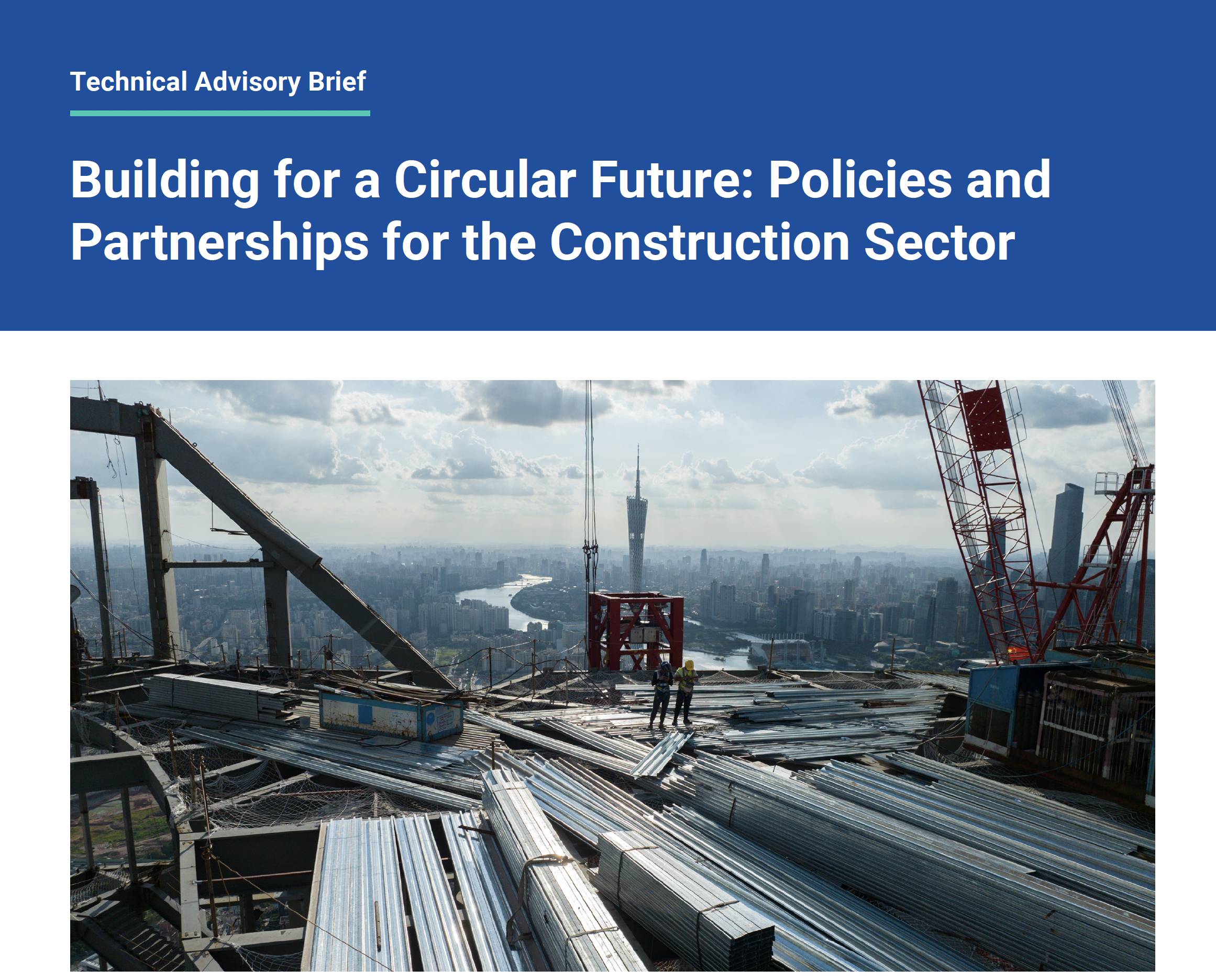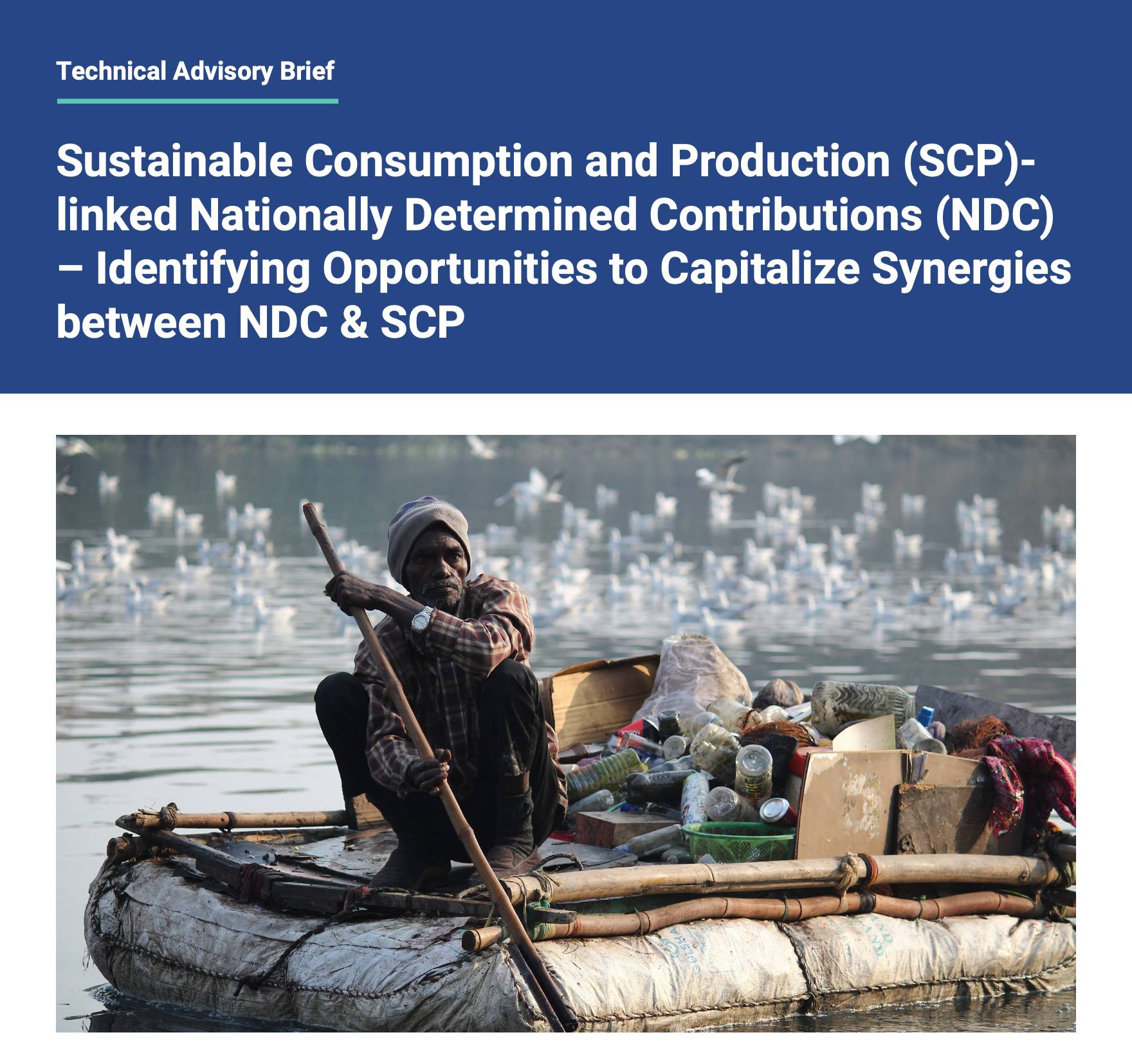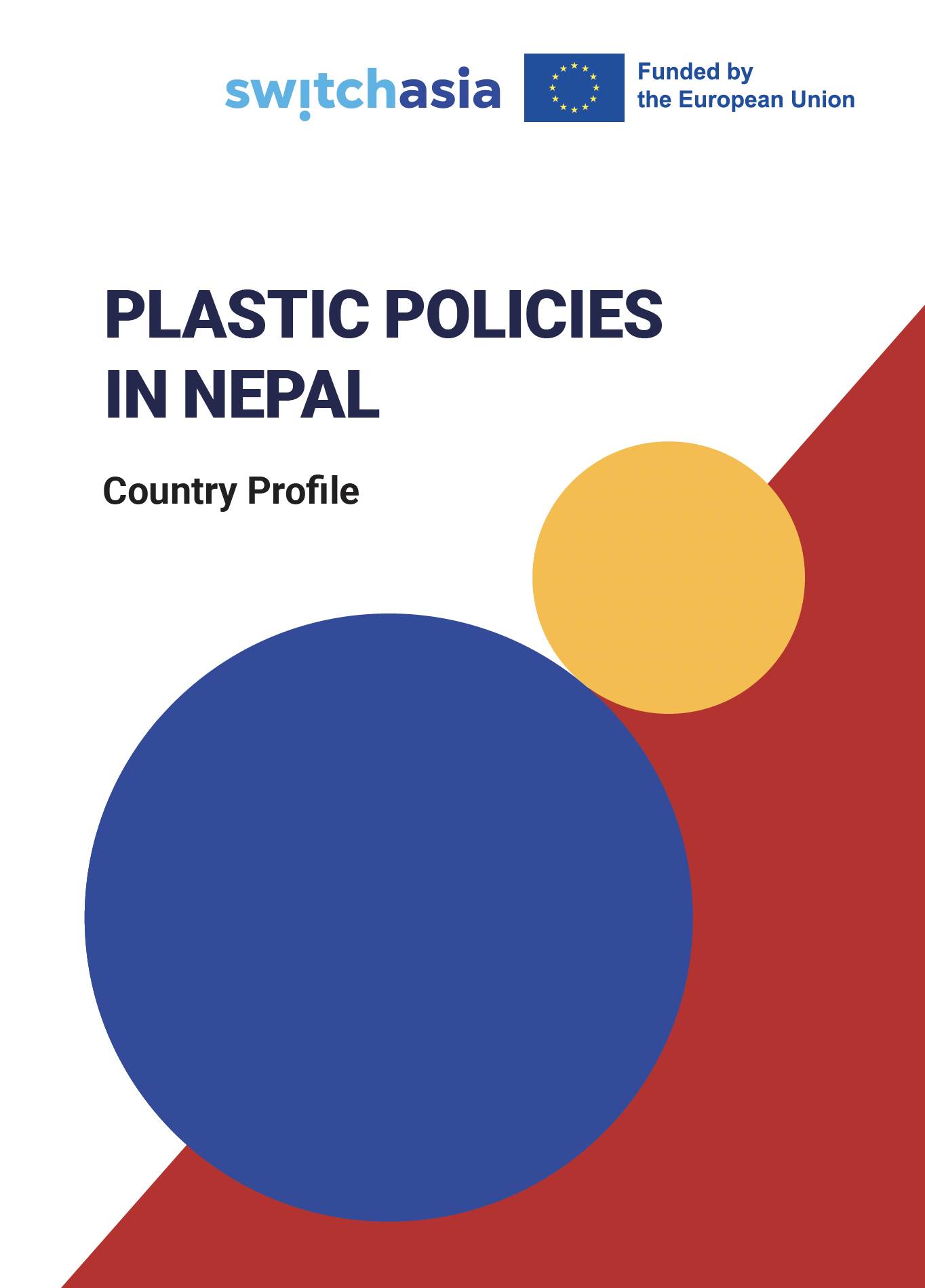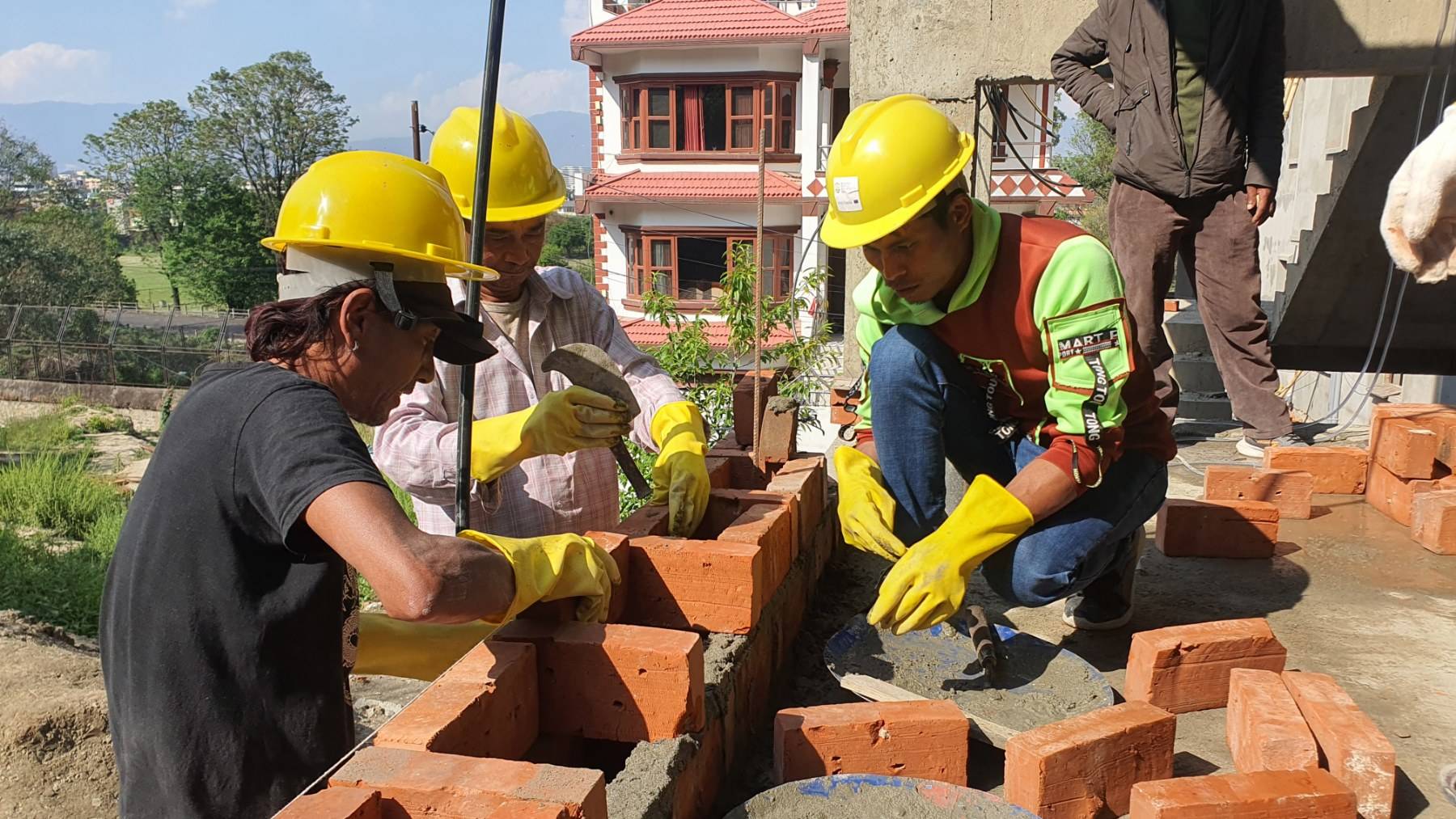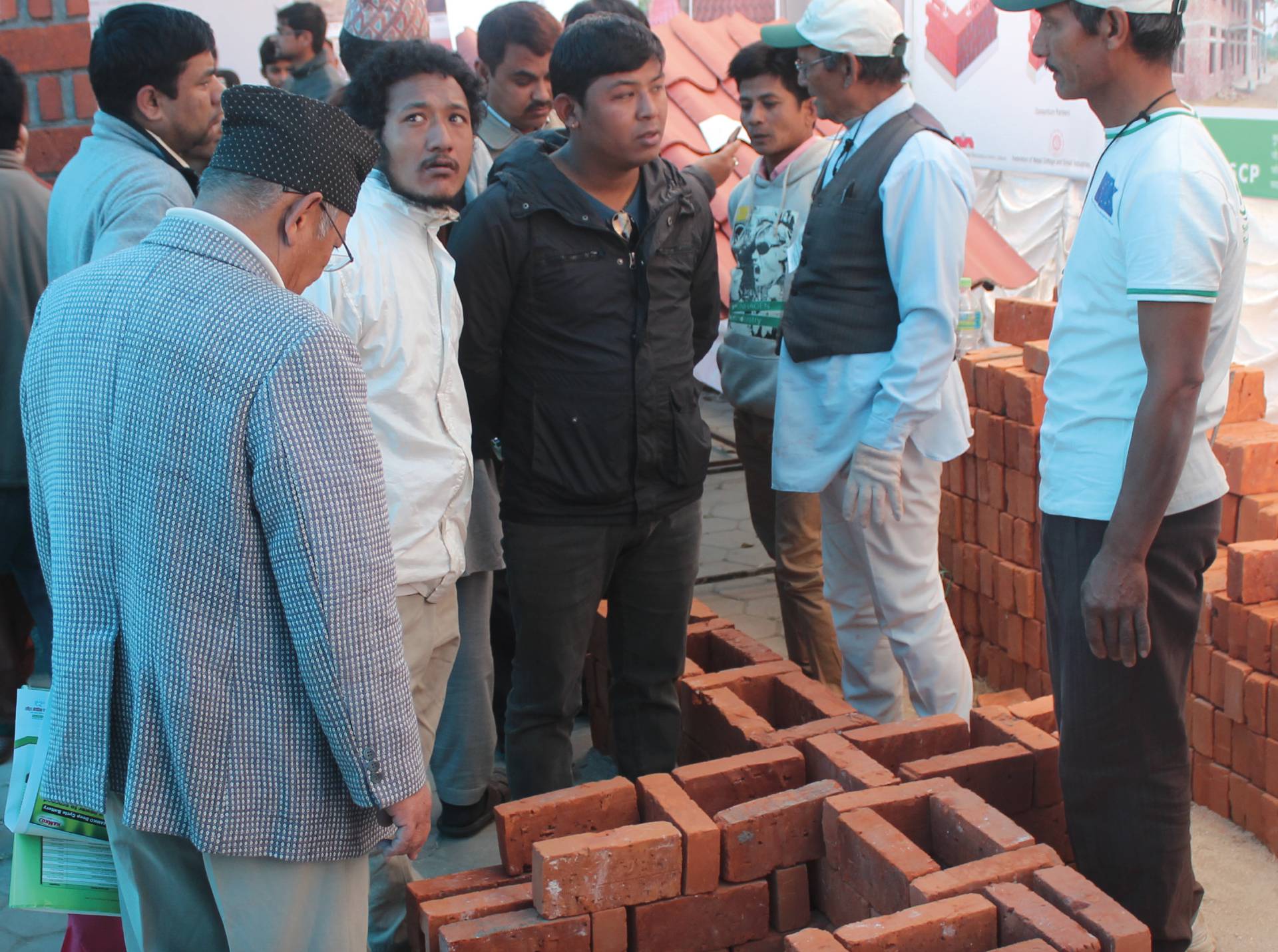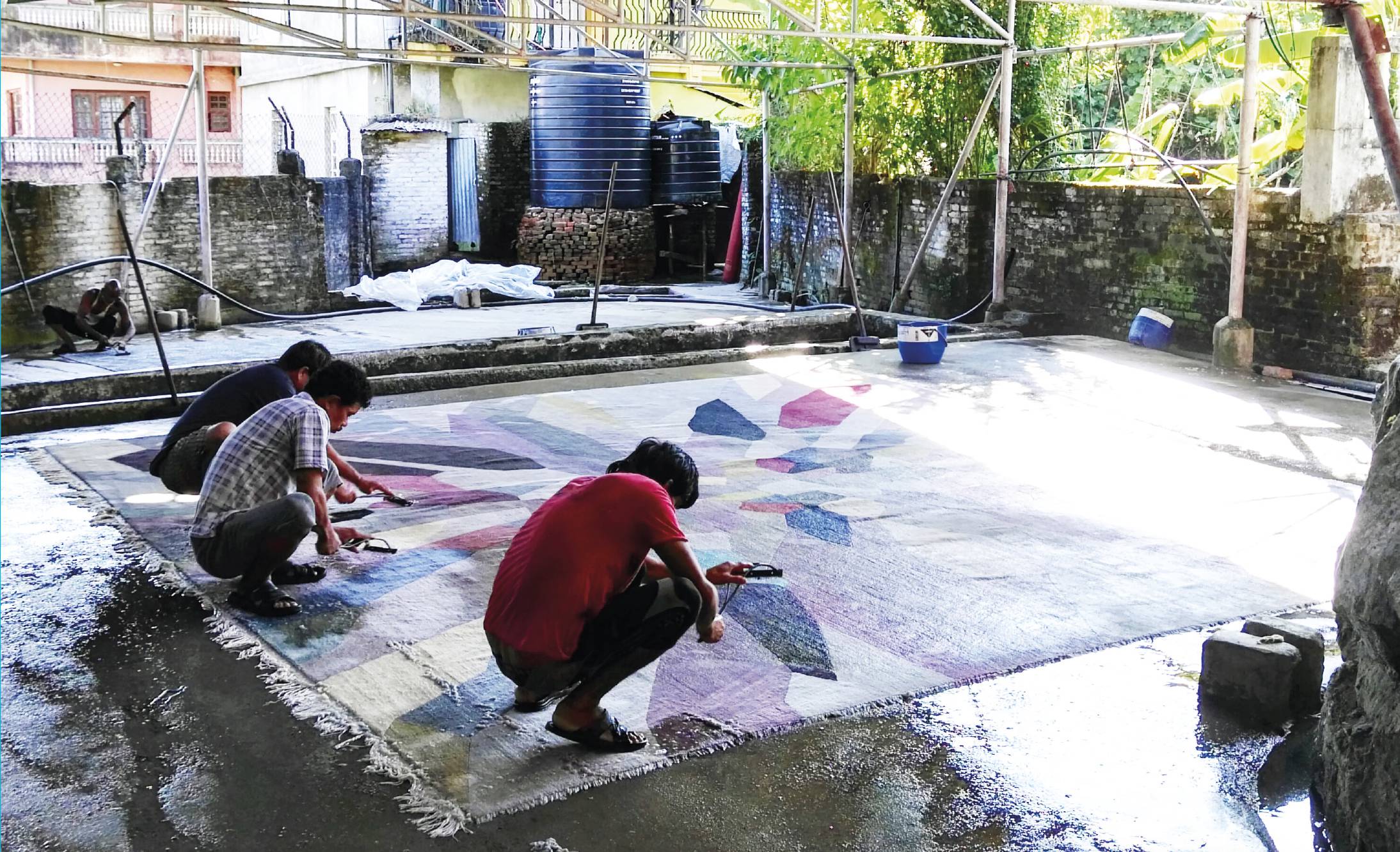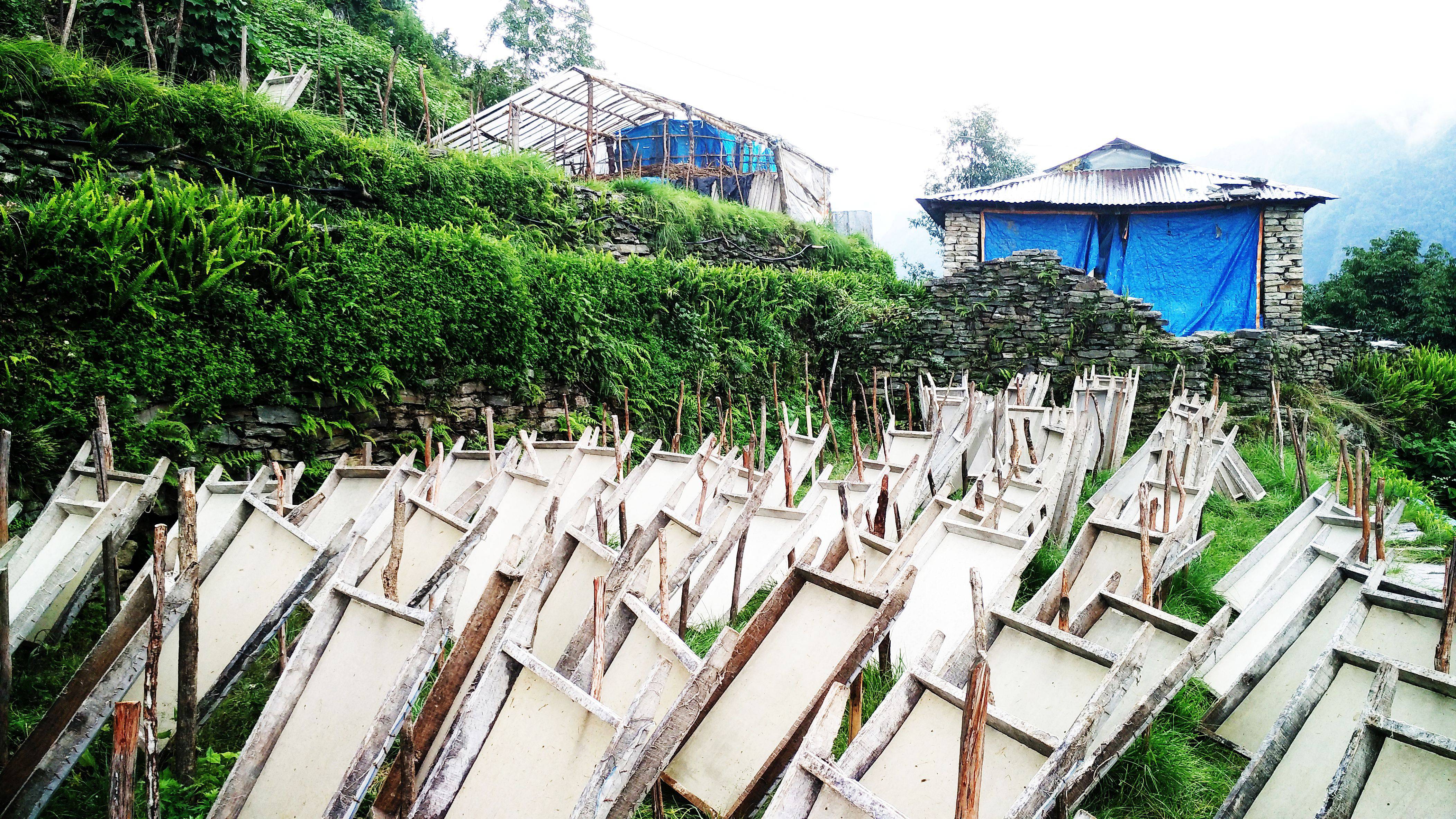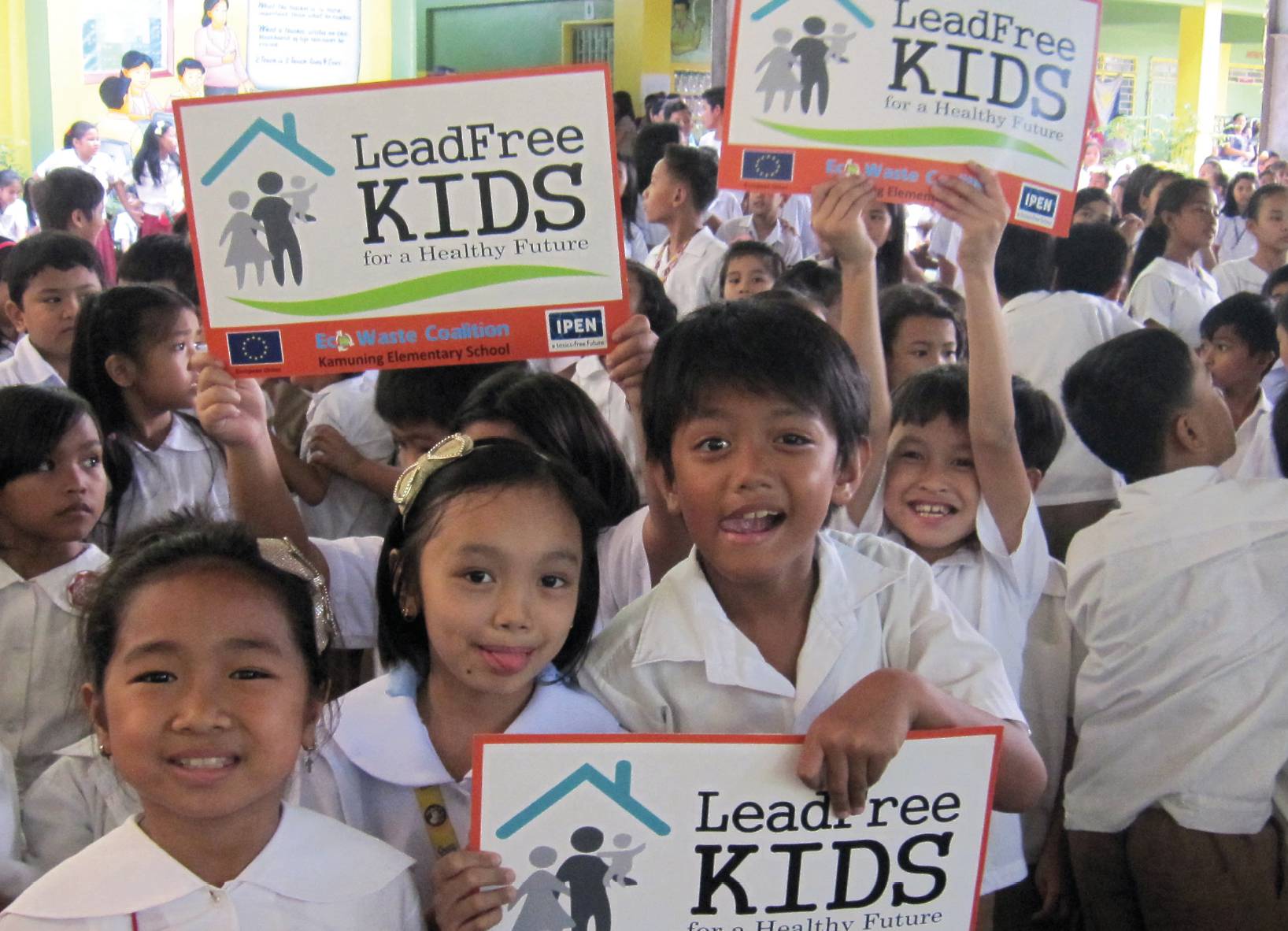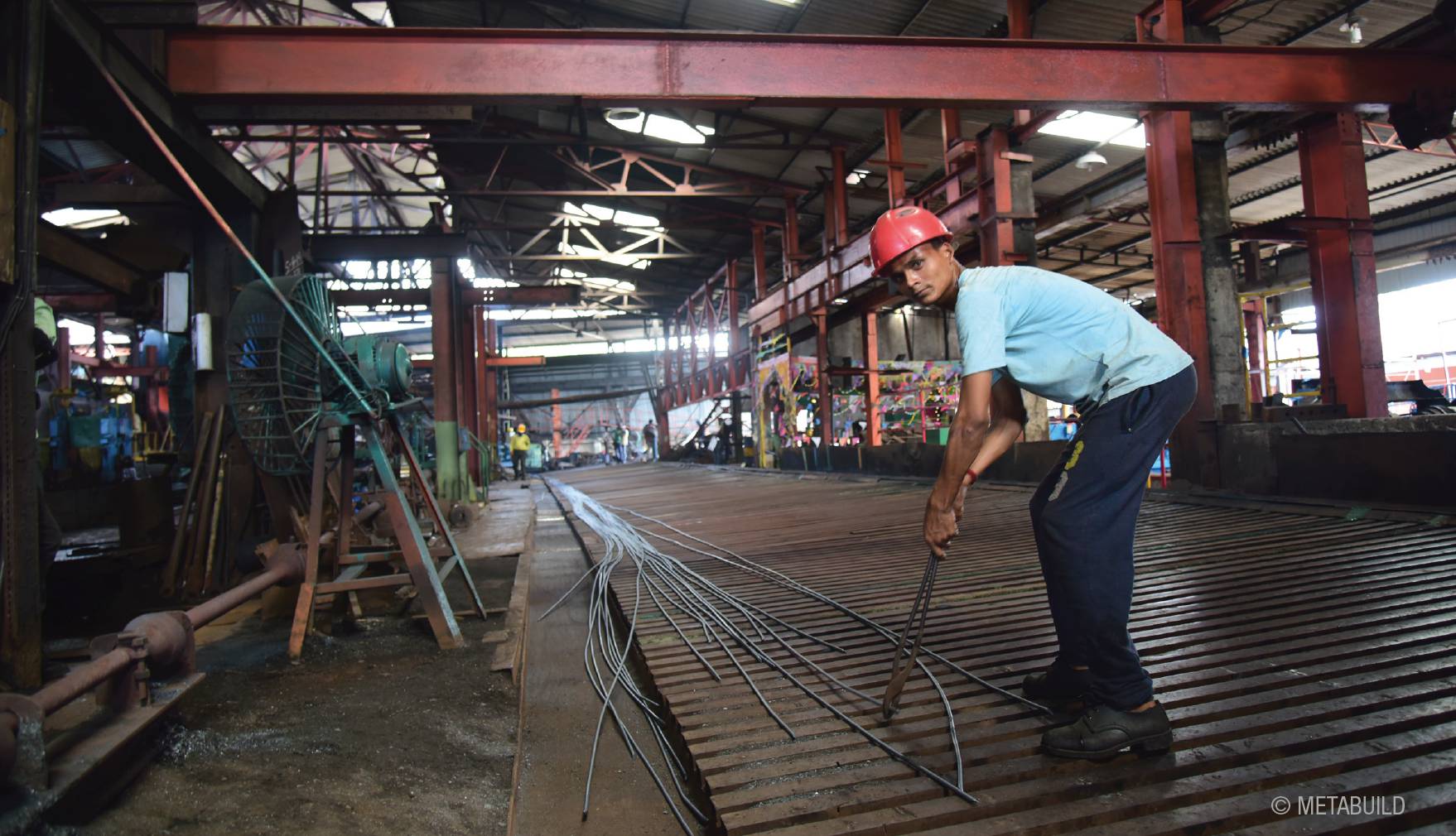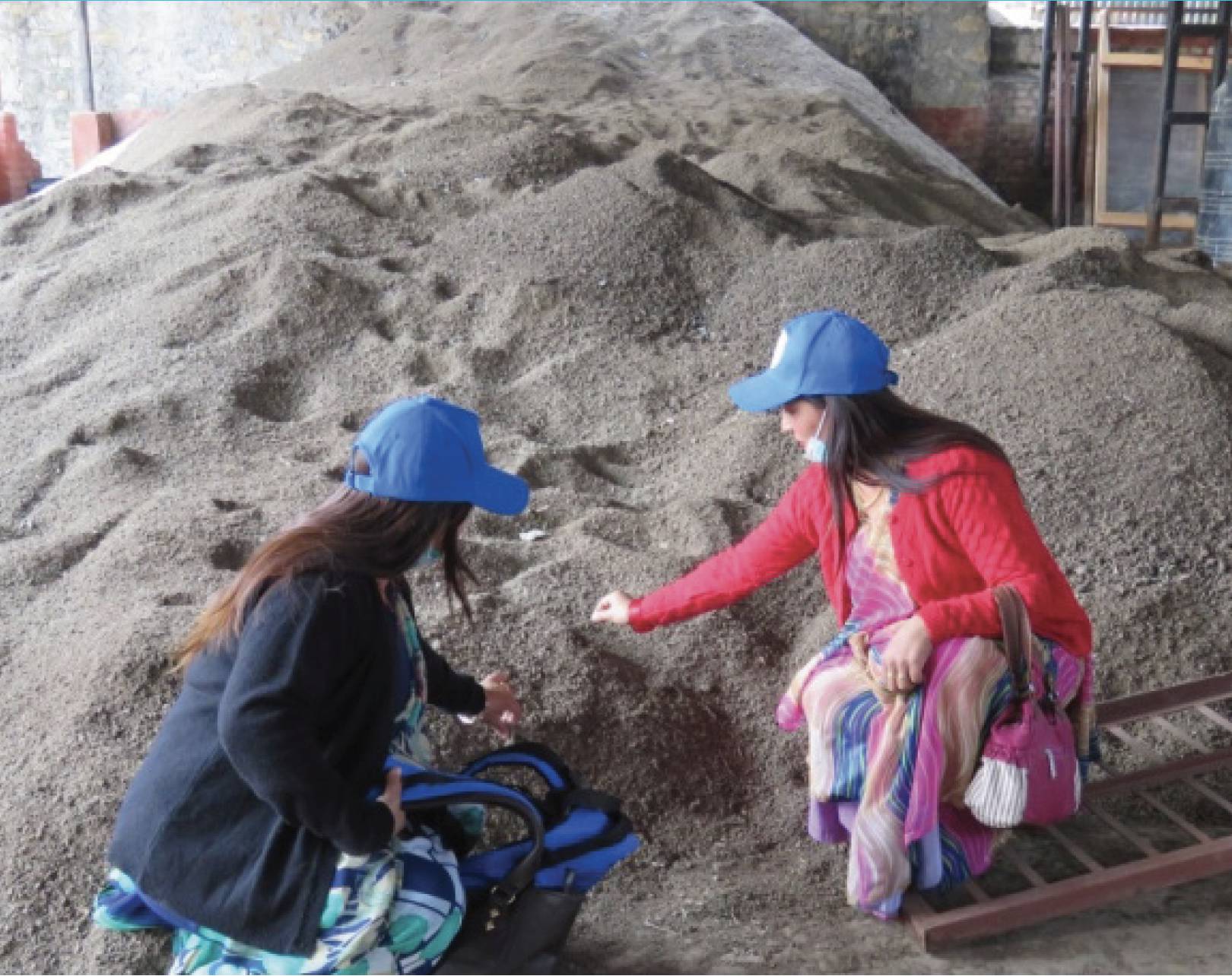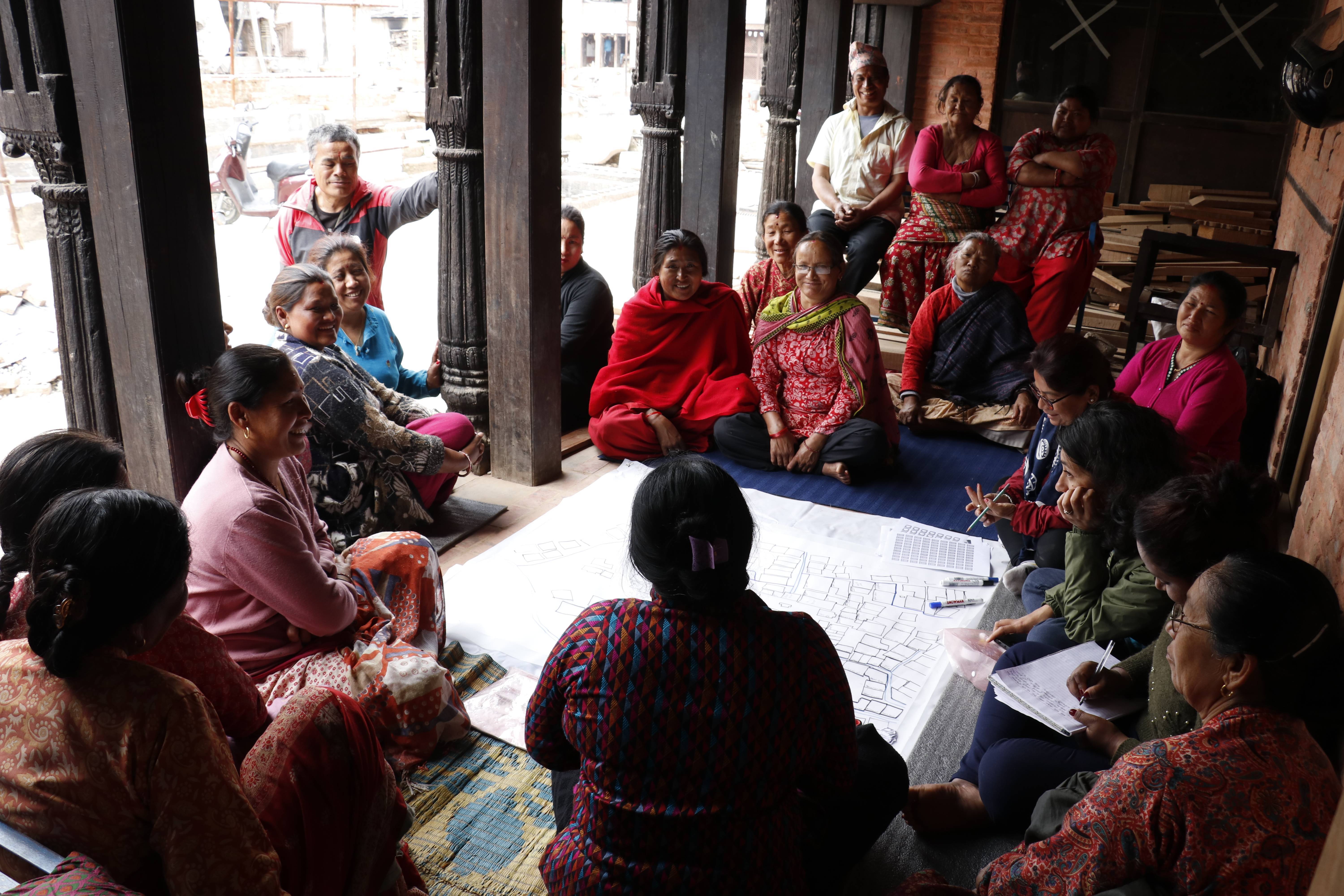
National SCP Context
Policy efforts in Nepal addressing Sustainable Consumption and Production (SCP) are anchored in the Solid Waste Management Act 2011[1] and the Waste Management National Policy 2022[2], which provide the foundation for waste reduction, recycling, and resource efficiency. In addition, the Framework for Extended Producer Responsibility in E-Waste and E-Cooking Devices[3] serves as a guiding document to support Nepal’s future roadmap on lifecycle responsibility for electronic products. Nepal’s 16th five-year plan (2024/25 - 2028/29)[4] prioritises reducing plastic consumptions through waste management, plastic control mechanism and other environmental management measures. Recognising the importance to reduce plastic consumption, National Environmental Policy (NEP) 2019[5] embraces the circular economy principles through promotion for adoption of alternatives to single-use plastics as well as enhance segregation and recycling of plastic waste. Government of Nepal has also approved the Energy Development Roadmap 2081, which aims to replace imported fossil fuels with domestic renewable energy sources by 2035, ultimately contributing to the achievement SCP goals. The National Energy Efficiency Strategy (NEES) 2075 aims to double its annual energy efficiency improvement rate from 0.84% to 1.68% by 2030 indicating its commitment towards sustainable production process.
Connection to the Global Agenda
Nepal has submitted Voluntary National Reviews (VNRs) at the UN High-Level Political Forum in 2017, 2020[6], and 2024[7], highlighting national efforts to accelerate SDG implementation, including Responsible Consumption and Production (SDG 12). The Sixteenth National Development Plan (FY 2024/25–2028/29)[8] embeds SDG priorities within its broader vision of “Good Governance, Social Justice, and Prosperity,” guiding sustainable development and the country’s transition toward high-income status by 2043. The National Planning Commission (NPC) coordinates SDG initiatives and tracks progress through the Nepal SDG Status and Roadmap (2016–2030)[9], which sets targets and indicators for SDG 12 and other sustainability objectives.
A key solution to Climate Change
Nepal is advancing climate action through integrated national planning that emphasizes both mitigation and adaptation. The country's National Climate Change Policy 2019[10] provides the overarching framework for climate governance, promoting low-carbon development, climate resilience, and sectoral coordination. The Nationally Determined Contribution (NDC) 3.0, submitted in May 2025[11], sets ambitious targets to reduce greenhouse gas emissions by 17.12% by 2030 and 26.79% by 2035 compared to a Business-As-Usual scenario, covering energy, transport, cooking and heating, industry, energy efficiency in buildings, forestry, agriculture, and waste management. To guide long-term climate action, Nepal has developed a Long-Term Strategy for Net Zero Emissions by 2045[12] and an NDC Implementation Plan until 2030[13], providing roadmaps for sector-specific interventions, capacity building, and investment in low-carbon and climate-resilient pathways.
Priority sectors for Sustainable Consumption and Production
- Reducing plastic pollution and promoting 3R strategies through awareness efforts and policy advocacy, supporting initiatives such as Roots of Circularity Nepal[14] to foster circular practices and enhance environmental awareness. Advancing circular economy practices in industry and the construction sector by improving recycling and reuse of plastics, glass, and metal, and enhancing resource efficiency.6
- Promoting sustainable public procurement, eco-labelling, and consumer awareness to foster more responsible production and consumption patterns.[15]
- Promoting sustainable forestry and alternative energy use to preserve carbon sinks and reduce reliance on wood for energy.6
- Encouraging sustainable agriculture by adopting environmentally friendly farming practices and reducing chemical inputs.6
[1] Nepal Law Commission. (2011). Solid Waste Management Act 2011
[2] Government of Nepal. (2022). Waste Management National Policy 2022
[3] Doko Recyclers Pvt. (2025). Framework Development for Extended Producer Responsibility in E-Waste and E-Cooking Devices in Nepal
[4] Government of Nepal (2024). The Sixteenth Plan (Fical year 2024/25-2028/29)
[5] Government of Nepal (2024). National Environment Policy 2019
[6] Government of Nepal. (2020). National Review of Sustainable Development Goals
[7] Government of Nepal. (2024). Voluntary National Review of Sustainable Development Goals
[8] Government of Nepal. (2024). The Sixteenth National Development Plan (FY 2024/25–2028/29)
[9] Government of Nepal. (2017). Sustainable Development Goals Status and Roadmap: 2016-2030
[10] Government of Nepal. (2019). National Climate Change Policy 2019
[11] Government of Nepal. (2025). Nationally Determined Contribution (NDC) 3.0
[12] Government of Nepal. (2021). Nepal's Long-term Strategy for Net-zero Emissions
[13] Government of Nepal. (2022). NDC Implementation Plan
[14] Roots of Circularity Nepal Website
[15] Pokhrel, A., & Awasthi, K. D. (2025). Advancing Sustainable Procurement: Drivers, Barriers, and Strategic Framework from Nepal as a Developing Country Case
A look back at milestones that shaped our work
2018
SCP Facility
- Preliminary assessment of SCP related policies, activities, needs/gaps, and opportunities.
Regional Policy Advocacy Component (RPAC)
Facilitated the participation of Nepalese key-stakeholders in the following regional/ sub-regional activities:
- Asia Pacific Low Carbon Lifestyles Challenge (19-22 Mar 2018), hosted by Thailand, regional level
- Transforming Asia Pacific: Innovative Solutions, Circular Economy and Low Carbon Lifestyles (17-19 Sep 2018), hosted by Thailand, regional level
- Asian Circular Economy Leadership Academy (3-8 Dec 2018), hosted by Thailand, regional level
2019
Regional Policy Advocacy Component (RPAC)
Facilitated the participation of Nepalese key-stakeholders in the following regional/ sub-regional activities:
- “Sustainability Reporting – Thinking Circular Economy by Businesses” - This event was organised back-to-back with 2019 Asia Pacific Forum on Sustainable Development (27 Mar 2019), hosted by Thailand, regional level
- Businesses Accelerating Inclusive Green Economies – "Leaving No One Behind” - Side event on the Responsible Business and Human Rights Forum co-organised by the Royal Thai Government, OECD, United Nations Development Programme (UNDP), ESCAP, International Labour Organization (ILO) and with the participation of the UN Working Group on Business and Human Rights (11 Jun 2019), hosted by Thailand, regional level
- WEBINAR: SDG 12.1 Reporting for SWITCH-Asia Countries – Connecting the dots between actions and reporting (5 Nov 2019), regional level
- Policy Dialogue on SDG12 Reporting (21 Nov 2019), hosted by Vietnam, regional level
- 2019 SWITCH-Asia Leadership Academy on Circular Economy (2-6 Dec 2019), hosted by China, regional level
- "Supporting decision making on SCP through training on Sustainable Procurement” - This event was organised back-to-back with International Conference on Sustainable Energy and Green Technology 2019 (11 Dec 2019, hosted by Thailand, regional level
2020
Facilitated the participation of Nepali key-stakeholders in the following regional/ sub-regional activities:
- SWITCH2Green Meeting (Apr 2020)- RPAC initiated the discussion and shared the first report in 2020.
- Moving the Needle on Climate Change (10 Jun 2020)– The event was co-organised by the UNESCAP as a part of the 2020 Virtual United Nations Responsible Business and Human Right Forum (RBHRF), regional level
- World Environment Day 2020 (5-7 Jun 2020)– A media kit was provided to call for action to promote SCP as a part of the 2020 World Environment Day (WED) celebration, regional level
- Intervention in regional forum: Webinar on Sustainable Lifestyles for Plastics & Packaging Waste Management During a Pandemic COVID-19 (6 Aug 2020), regional level
- SCP in Tourism: Opportunities and Challenges with COVID-19 (8 Oct 2020), regional level
- Innovation and Connectivity through Farm to Fork (13 Nov 2020), regional level
- Sustainable Lifestyles for SCP (19 Nov 2020), hosted by Thailand, regional level
- Sub-regional Workshop on SPP for SACEP Countries (25 November 2020), the event was organised in partnership with South Asia Co-operative Environment Programme (SACEP) for South Asia region, Sub-regional level
- Support to Steering Committee of SWITCH-Asia (3 Dec 2020)– RPAC provided support for the annual Steering Committee Meeting and proposed 2021 workplan, regional level
- Regional Policy Dialogue on Circular Cities (4 Dec 2020), regional level
- Regional Dialogue Driving Mechanisms for Eco-Design in Asia (9 Dec 2020), regional level
- Leadership Academy on Circular Economy 2020 (14-18 Dec 2020), regional level
- Webinar: Innovations & Startups (16 Dec 2020), regional level
2021
Facilitated the participation of Nepali key-stakeholders in the following regional/ sub-regional activities:
- Contextualising the Circular Economy for Action (4 Feb 2021), regional level
- Technology for Circular Economy: A Prologue to the 2021 SWITCH-Asia Leadership Academy (25 March 2021), regional level
- Circular Economy and Sustainable Lifestyles Course (18 May 2021) – launch of offline course on SCP for policy makers and young professionals, regional level
- South Asia Policy Dialogue on the Role of Businesses in Accelerating SCP (23 March 2021) – to disseminate the findings of the RPAC Study on SCP – Stocktaking of Perspectives in South Asian Business, sub regional level
- GO4SDGs High level launch in Asia and the Pacific (21 April 2021), regional level
- World Environment Day 2021 (4 June 2021), regional level


